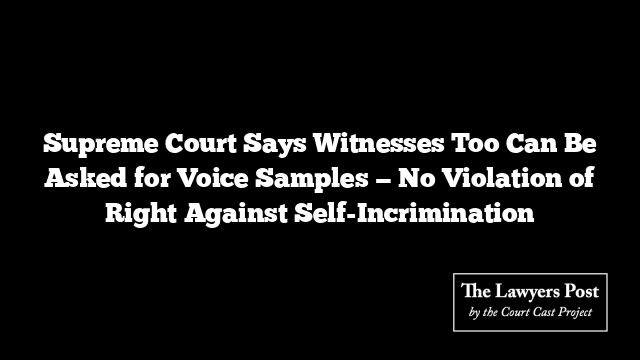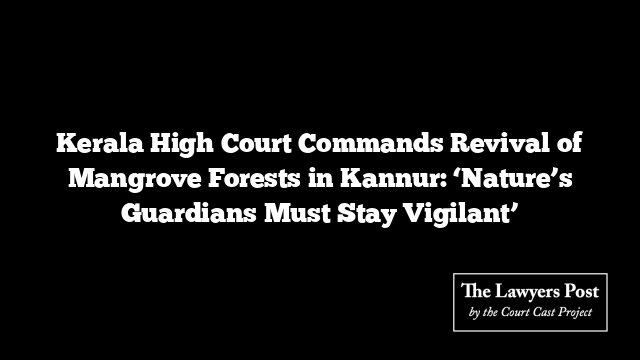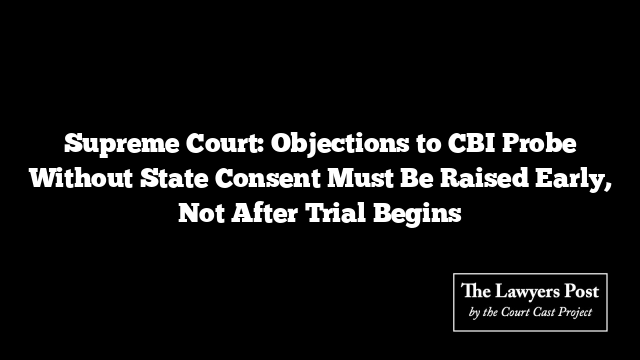The Supreme Court has clarified that Magistrates have the authority to direct not only accused persons but also witnesses to provide their voice samples for investigation. The Court ruled that such samples — whether of voice, fingerprints, handwriting, or DNA — amount to material evidence, not testimonial compulsion, and therefore do not violate Article 20(3) of the Constitution, which protects against self-incrimination.
A Bench led by Chief Justice B.R. Gavai and Justice K. Vinod Chandran leaned on the landmark 2019 Ritesh Sinha v. State of Uttar Pradesh judgment, which recognized that a Magistrate may order “a person” to provide a voice sample even in the absence of a specific provision in the Criminal Procedure Code. The Bench emphasized that the term person was deliberately used — extending beyond the accused to include witnesses as well.
“The rule against self-incrimination applies to any person — whether accused or witness,” the Court observed, noting that the power to collect such evidence stems from the necessity of thorough investigation rather than coercion.
The case arose from a 2021 incident concerning the death of a young woman that led to disputes between her family and in-laws. During the probe, investigators sought a voice sample from a key witness accused of threatening another witness. When the Magistrate permitted it, the witness approached the Calcutta High Court, which set aside the order on the ground that the issue was awaiting consideration by a larger Supreme Court bench.
The apex court, however, overturned the High Court’s ruling, stressing that existing Supreme Court precedents — like Ritesh Sinha — continue to hold the field unless expressly overruled. Justice Chandran, writing for the Bench, said that until new provisions are formally embedded in criminal procedure law, Magistrates can rely on these rulings to direct voice sampling.
The judgment further referred to Section 349 of the Bharatiya Nagarik Suraksha Sanhita (BNSS), which now explicitly authorizes the collection of voice samples. The Court reaffirmed that taking such a sample does not amount to forced testimony but is akin to providing physical identifiers like fingerprints or handwriting.
“Providing a sample merely offers material for comparison. It is the investigative discovery — not the act of giving the sample — that may incriminate,” the Court clarified, citing State of Bombay v. Kathi Kalu Oghad (1961).
With this, the Supreme Court reinstated the Magistrate’s order permitting the collection of the voice sample, reaffirming that investigative tools of this nature fall well within constitutional limits.





